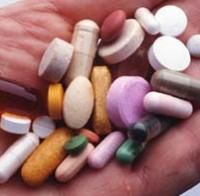Negotiating the world of vitamins can be tricky. We all know the importance of vitamins, but not many of us understand exactly how they work.
The links at the bottom of this page will take you to in-depth articles on each vitamin. We'll detail the health benefits of the various vitamins, pinpoint vitamin-rich foods that should be a part of your diet, discuss the dangers of vitamin deficiencies, and examine the pros and cons of vitamin supplements.
Advertisement
In addition to delving into perennial favorites like vitamin C, we'll tell you about underappreciated -- yet equally important -- vitamins like folate and biotin.
Give your body the fuel it needs and the weapons to fight off disease!
Advertisement
